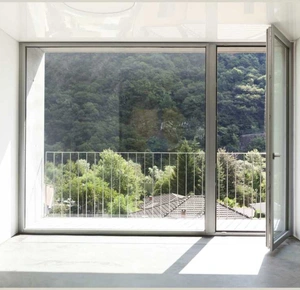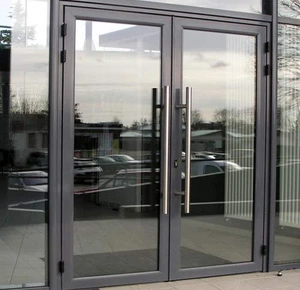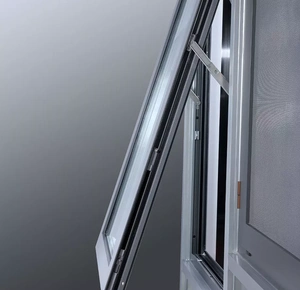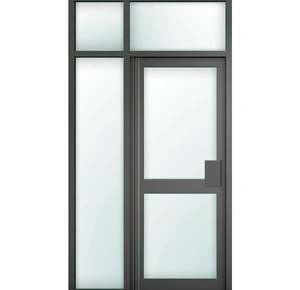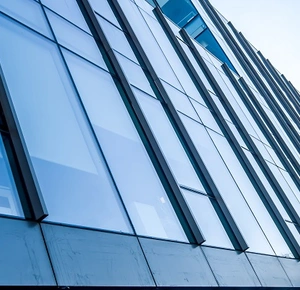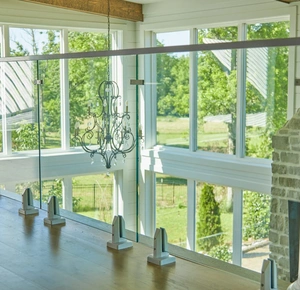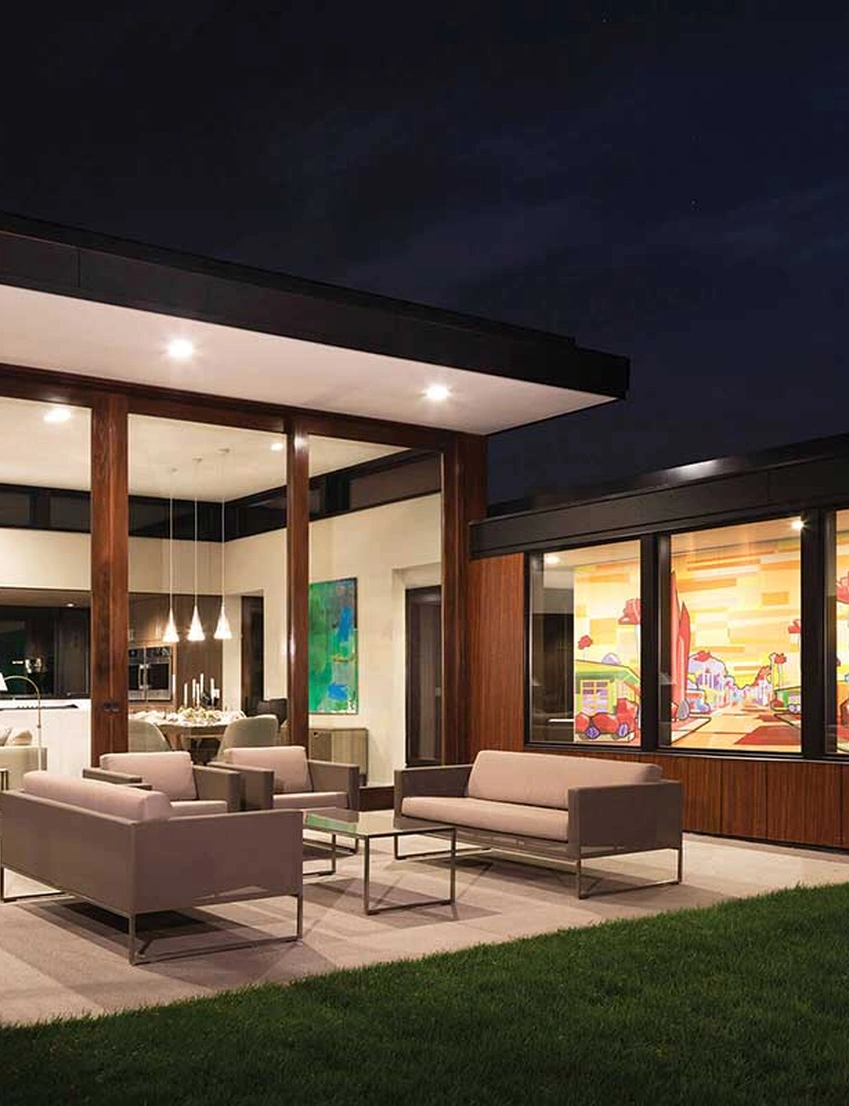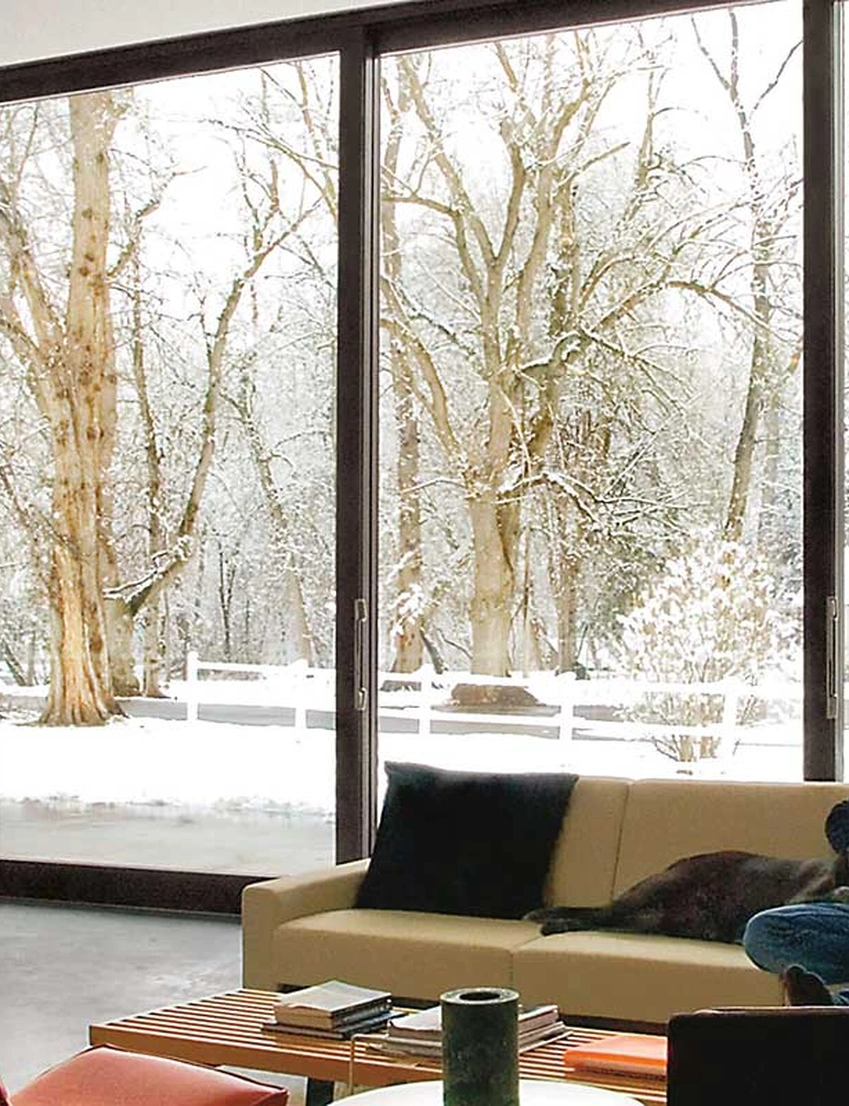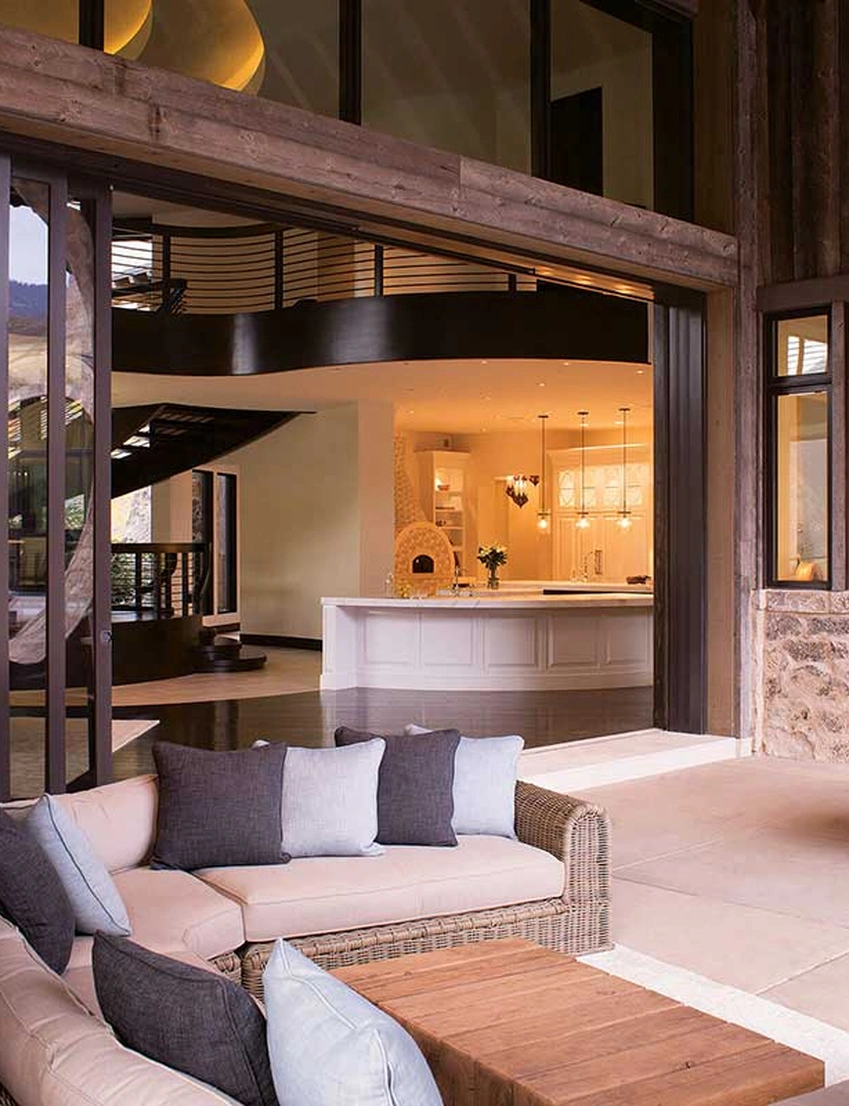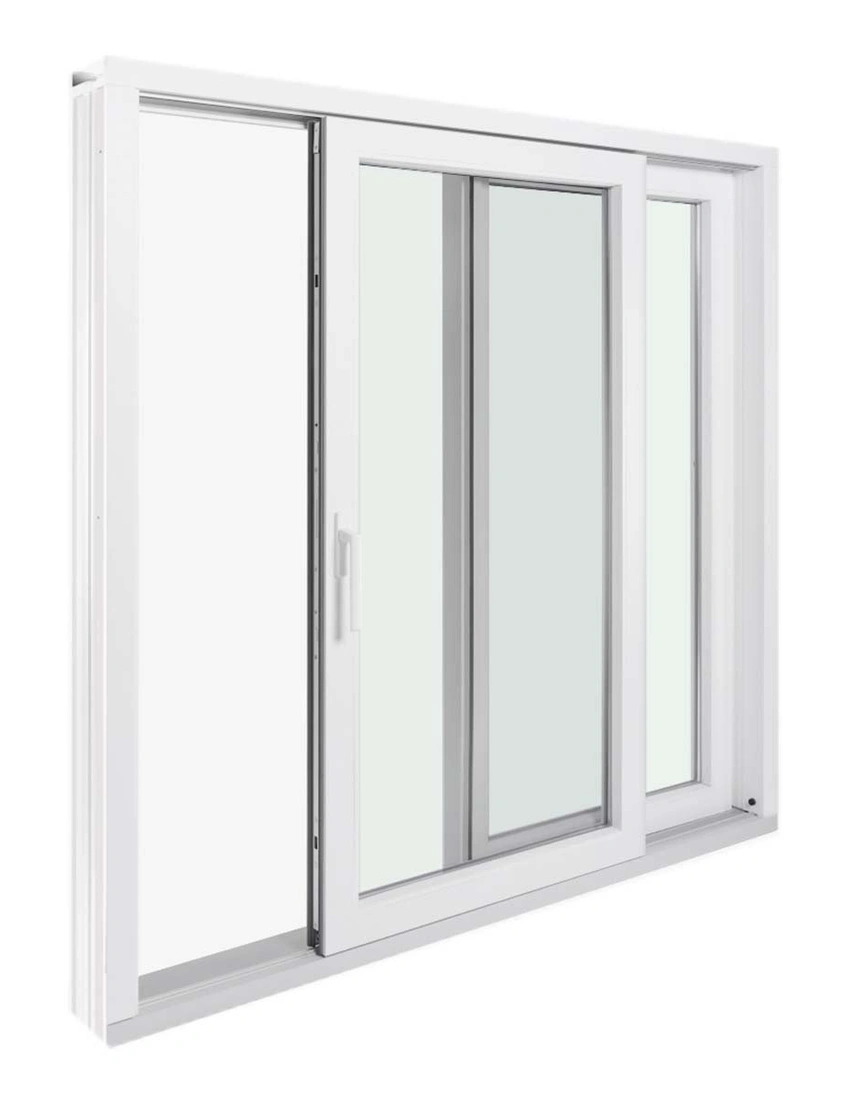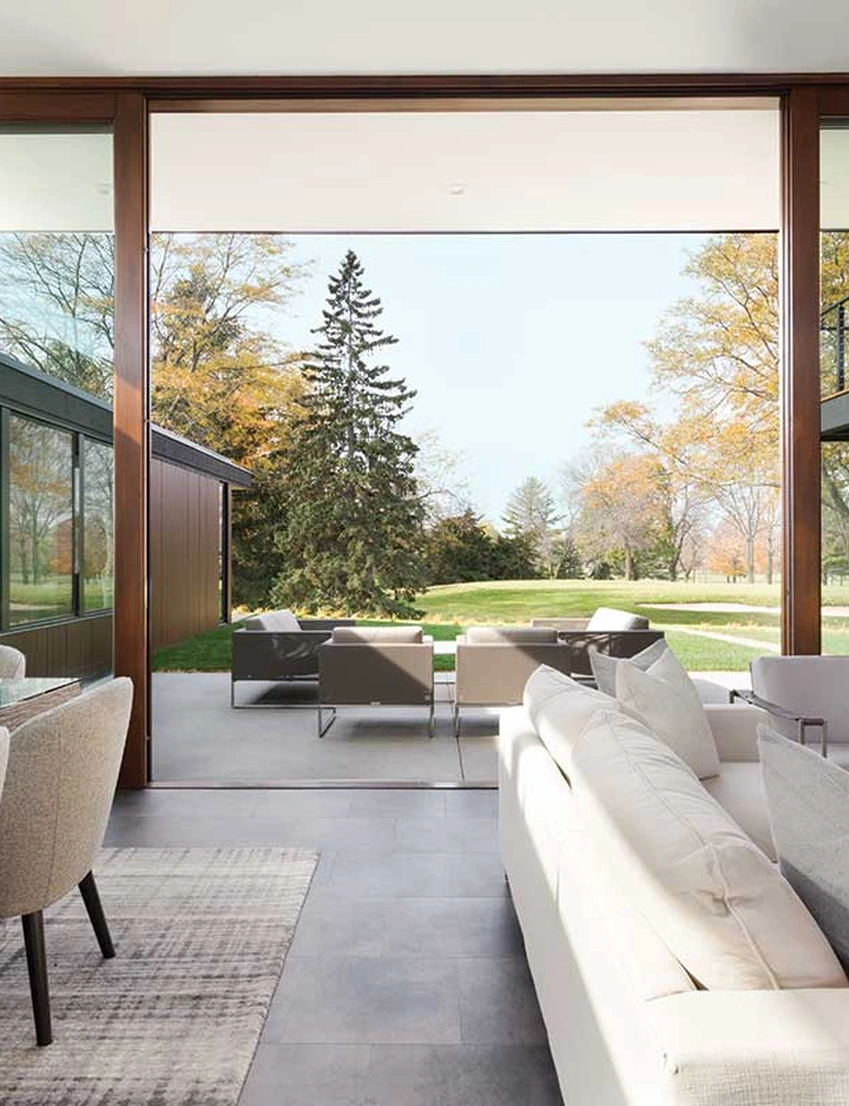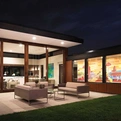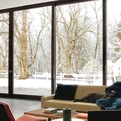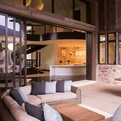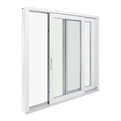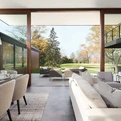Aluminium folding (accordion) windows, also known as bi-fold or folding-sliding windows, are a popular choice in modern architecture for their aesthetic appeal,
- Brand: Arak Window
- Category: Sliding Windows , Aluminium Windows
Aluminium folding (accordion) windows, also known as bi-fold or folding-sliding windows, are a popular choice in modern architecture for their aesthetic appeal, functionality, and versatility. These windows consist of multiple panels that fold and slide along a track, opening up a wide, unobstructed view when fully opened. Here’s an in-depth look at aluminium folding windows, covering their design, materials, benefits, installation, and applications.
Design and Structure
Aluminium folding windows are designed with multiple panels connected by hinges. These panels fold and stack neatly to one or both sides, similar to an accordion, hence the name. The number of panels can vary depending on the size of the window opening and the design preference. The panels glide along a track system installed at the top and bottom of the window frame, ensuring smooth and easy operation.
The frame and tracks are typically made from aluminium due to its strength, durability, and lightweight properties. Aluminium allows for slimmer frames, providing a sleek, modern look and maximizing the glass area for better views and natural light.
Materials and Components
The primary material used in the construction of folding windows is aluminium. Aluminium is chosen for several reasons:
Durability: Aluminium is resistant to corrosion, rust, and weathering, making it ideal for both indoor and outdoor applications.
Strength: Aluminium's high strength-to-weight ratio allows for the construction of large, expansive windows without compromising structural integrity.
Low Maintenance: Aluminium requires minimal maintenance compared to other materials like wood, which may need regular painting or sealing.
Aesthetics: Aluminium can be powder-coated in various colors and finishes, offering flexibility in design to match different architectural styles.
In addition to aluminium, high-quality glass panels are used to provide insulation, soundproofing, and UV protection. Double or triple glazing options are available to enhance energy efficiency and reduce heat transfer.
Benefits of Aluminium Folding Windows
Space Maximization: One of the most significant advantages of folding windows is their ability to create wide, open spaces. When fully opened, the panels stack neatly to the side, removing any barriers between the indoors and outdoors. This feature is particularly beneficial for small spaces where traditional swinging or sliding windows might take up valuable floor space.
Enhanced Natural Light and Ventilation: The large glass panels of aluminium folding windows allow ample natural light to flood into the room, creating a bright and welcoming environment. When opened, they provide excellent ventilation, promoting better air circulation and a more comfortable indoor climate.
Aesthetic Appeal: Aluminium folding windows offer a sleek and modern look that can enhance the overall aesthetic of any building. Their slim frames and expansive glass panels create a seamless connection between indoor and outdoor spaces, making them a popular choice for contemporary homes and commercial buildings.
Versatility: These windows are highly versatile and can be customized to fit various architectural styles and sizes. They can be installed in living rooms, kitchens, dining areas, patios, balconies, and even commercial spaces like restaurants and offices.
Energy Efficiency: With the right glazing options, aluminium folding windows can significantly improve energy efficiency. Double or triple glazing helps to insulate the building, reducing heat loss in winter and heat gain in summer. This leads to lower energy bills and a more comfortable indoor environment.
Security: Modern aluminium folding windows come with advanced locking mechanisms that enhance security. Multi-point locking systems and toughened glass make these windows a secure choice for any property.
Installation Process
The installation of aluminium folding windows requires careful planning and precision to ensure proper functionality and performance. Here is an overview of the installation process:
Measurement and Design: Accurate measurements of the window opening are taken to design custom panels and frames that fit perfectly. This step is crucial for ensuring a seamless installation.
Preparation of the Opening: The existing window or wall section is removed, and the opening is prepared for the new installation. This may involve reinforcing the structure to support the weight of the new windows.
Frame Installation: The aluminium frame and tracks are installed first. The frame must be level and square to ensure smooth operation of the folding panels. The tracks are securely fixed to the top and bottom of the opening.
Panel Installation: The glass panels are fitted into the aluminium frames and connected with hinges. Each panel is carefully aligned to ensure proper folding and sliding. The panels are then attached to the tracks, allowing them to glide smoothly.
Sealing and Finishing: Once the panels are installed, the edges and gaps are sealed to prevent air and water infiltration. The final step involves checking the operation of the windows, adjusting as necessary, and adding any finishing touches like trim or paint.
Applications of Aluminium Folding Windows
Aluminium folding windows are suitable for a wide range of applications in both residential and commercial settings:
Residential Spaces: In homes, folding windows are often used in living rooms, kitchens, and dining areas to create an open and airy feel. They are also popular for connecting indoor spaces with patios, gardens, or balconies.
Commercial Buildings: In commercial settings, folding windows can enhance the aesthetic appeal and functionality of spaces like restaurants, cafes, and retail stores. They provide flexibility in creating open storefronts or outdoor dining areas.
Offices: In office buildings, folding windows can be used to create flexible meeting spaces or open up areas for events and gatherings. They also help to bring natural light into the workspace, improving employee well-being and productivity.
Hospitality: Hotels and resorts often use aluminium folding windows to create luxurious and versatile guest rooms, lounges, and event spaces. The ability to open up these areas to the outdoors enhances the guest experience and creates a seamless transition between indoor and outdoor environments.
Types of Accordion Multi-Slide Doors
Accordion multi-slide doors, also known as folding sliding doors, are designed to provide expansive openings and seamless transitions between indoor and outdoor spaces. They are highly versatile and come in various configurations to suit different architectural needs. Below are detailed explanations of the different types of accordion multi-slide doors mentioned:
1. Multi-Slide Door - Stacking, 2 Panels
A multi-slide door with a stacking configuration and 2 panels is the simplest form of accordion door. In this setup, both panels slide and stack on top of each other on one side when fully opened. This type of door is ideal for smaller openings or spaces where you want to maximize the view and access to the outdoors without occupying much wall space.
Benefits:
Easy to operate.
Compact stacking, requiring minimal space.
Enhances natural light and ventilation.
Applications:
Small patios.
Balconies.
Compact living areas.
2. Multi-Slide Door - Pocket, 5 Panels
In a pocket configuration with 5 panels, the door panels slide into a hidden wall cavity (pocket) when opened. This design allows for a completely unobstructed opening, as the panels disappear entirely into the wall.
Benefits:
Maximizes the opening space.
Panels are hidden when open, providing a sleek look.
Ideal for creating a seamless indoor-outdoor transition.
Applications:
Large patios.
Outdoor living areas.
Spaces requiring maximum opening without visible panels.
3. Multi-Slide Door - Pocket, 7 Panels
Similar to the 5-panel pocket door, a 7-panel pocket door provides an even larger opening. All seven panels slide into a hidden pocket, creating a vast, unobstructed space.
Benefits:
Suitable for very wide openings.
Creates a dramatic, expansive view.
Perfect for blending large indoor spaces with outdoor areas.
Applications:
Large patios or terraces.
Commercial spaces like restaurants or event venues.
Homes with extensive outdoor entertaining areas.
4. Multi-Slide Door - Pocket, 3 Panels
A 3-panel pocket door is a mid-sized option that offers a good balance between opening size and practicality. The three panels slide into a wall pocket, providing a clear, unobstructed view and access when fully opened.
Benefits:
Offers a sizable opening without taking up too much wall space.
Panels are hidden when open, maintaining a clean aesthetic.
Easier to operate compared to more extensive configurations.
Applications:
Medium-sized patios.
Living rooms with access to outdoor spaces.
Offices or commercial areas needing moderate-sized openings.
5. Multi-Slide Door - Stacking, 4 Panels
A stacking door with 4 panels means the panels slide and stack together on one side of the opening. This configuration is ideal for medium to large openings where wall space is available for stacking the panels.
Benefits:
Creates a wide opening.
Panels stack neatly, requiring some wall space.
Allows for easy transition between spaces.
Applications:
Larger living rooms.
Dining areas with access to outdoor patios.
Commercial spaces like cafes or restaurants.
6. Multi-Slide Door - Stacking, 6 Panels, Bi-Part
A 6-panel stacking door in a bi-part configuration means that three panels slide and stack on each side of the opening. This design is perfect for very large openings and provides a symmetrical, balanced look.
Benefits:
Maximizes the width of the opening.
Panels stack on both sides, balancing the space.
Ideal for creating grand entrances and expansive views.
Applications:
Large living rooms or open-plan areas.
Commercial spaces with extensive outdoor seating.
Luxury homes with expansive outdoor views.
Conclusion
Aluminium folding (accordion) windows are a versatile and stylish solution for modern architecture. Their ability to create open, light-filled spaces, combined with their durability, low maintenance, and aesthetic appeal, makes them a popular choice for a variety of applications. Whether used in residential homes or commercial buildings, these windows offer numerous benefits, including enhanced natural light, improved ventilation, and energy efficiency. With careful planning and professional installation, aluminium folding windows can transform any space, creating a seamless connection between the indoors and outdoors.
Aluminum Profile Specifications
| Specification | Details |
|---|
How can I contact customer support?
If your order has not yet shipped, you can contact us to change your shipping address. If your order has already shipped, we may not be able to change the address.
Can I cancel my order?
If your order has not yet shipped, you can contact us to change your shipping address. If your order has already shipped, we may not be able to change the address.
Do you offer international shipping?
If your order has not yet shipped, you can contact us to change your shipping address. If your order has already shipped, we may not be able to change the address.
Can I track my order in real-time?
If your order has not yet shipped, you can contact us to change your shipping address. If your order has already shipped, we may not be able to change the address.
How do I know if a product is in stock?
If your order has not yet shipped, you can contact us to change your shipping address. If your order has already shipped, we may not be able to change the address.
